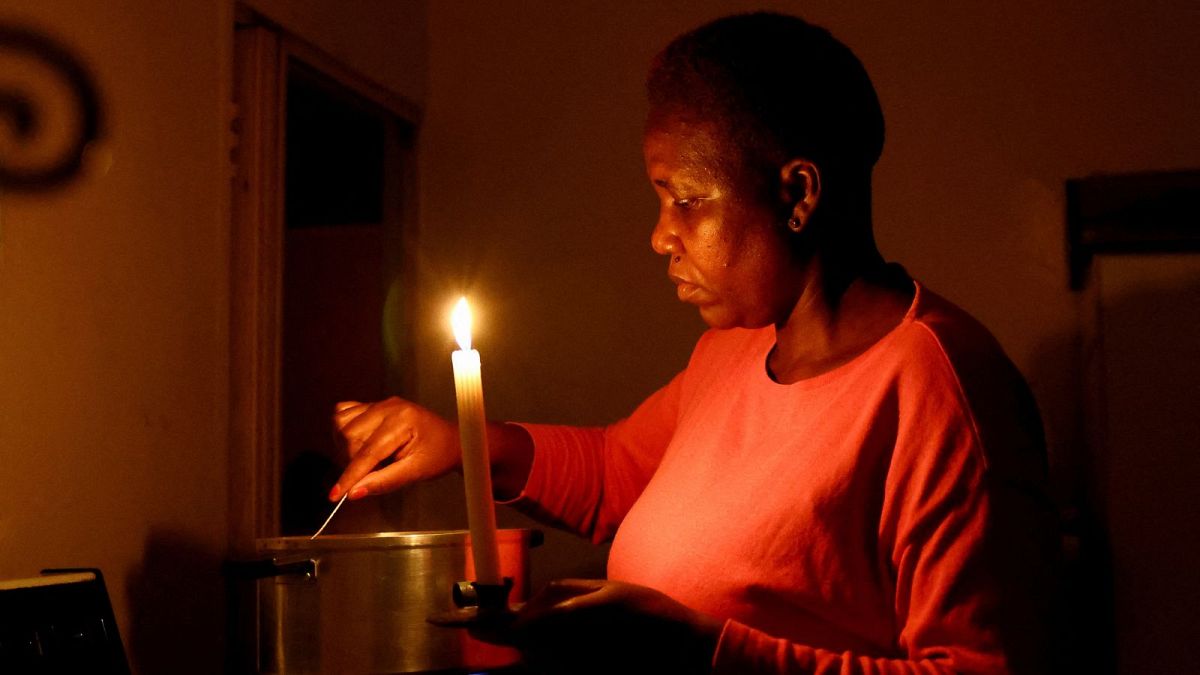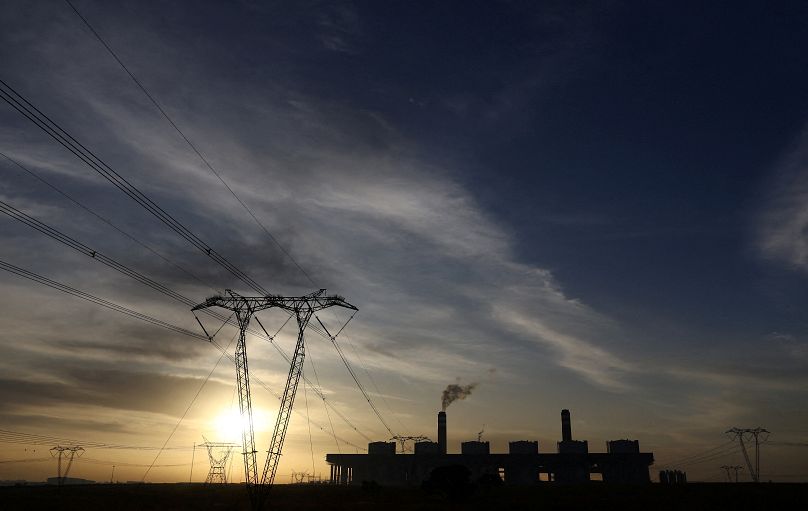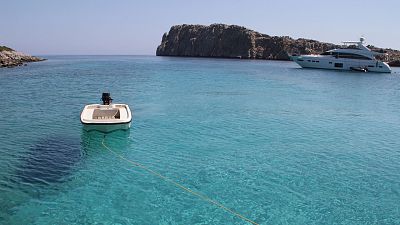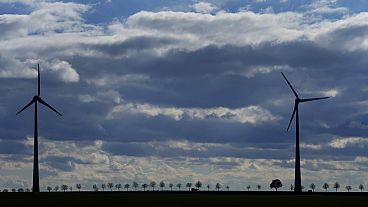President Ramaphosa says the emergency measure will lead to "a massive increase in power to the grid over the next 12 to 18 months."
After months of rolling power cuts, South African President Cyril Ramaphosa has declared a state of national disaster.
South Africa’s state-owned power company Eskom, which produces 90 per cent of the country’s electricity, is beleaguered with old and poorly maintained coal-fired power plants prone to breakdowns. It’s also around €23.7 billion in debt.
As demand outpaces supply, there have been scheduled blackouts - known as ‘load shedding’ - for up to 12 hours a day, impacting the lives and livelihoods of 60 million South Africans.
The nation is still largely dependent on fossil fuels, with only 7 per cent of its energy coming from renewables in 2020, according to the International Energy Agency.
So what does Ramaphosa’s announcement last week mean exactly, and could it hasten South Africa’s clean energy transition as well as resolve the immediate crisis?
What is a National State of Disaster?
The president has the power under the 2002 National Disaster Management Act to declare a crisis on this level if existing legislation cannot deal with the problem.
This gives the government powers to release resources to tackle the disaster, appoint people to provide emergency services and to bypass existing laws in the procurement and delivery of goods and services.
A cabinet member then oversees the process, heading up an intergovernmental committee to mitigate the disaster through co-ordination between national, provincial and municipal bodies and the National Disaster Management Centre.
How can it help resolve the power crisis?
Ramaphosa says it will enable a faster rollout of generators and solar panels to ensure uninterrupted power supply for businesses in food production, storage and retail supply chains.
It would also exempt critical infrastructure such as hospitals and water treatment plants from rolling blackouts. and limit regulatory requirements in procurement.
There is no clarity yet on where the power supply for these places will come from.
Energy experts said that while the disaster status might not resolve the power shortage, it would help the government do away with a lengthy procurement system and speed up coordination between different government agencies and stakeholders, including power utilities, energy regulators, and the private sector.
It could also lead to a rapid uptake of solar in public sector buildings such as hospitals, schools and municipal buildings through a nationalised central tendering process.
The government is looking at funding schemes for easier access to solar panels and also at cutting down the time taken to award projects.
When was the last time a National State of Disaster was declared?
This is the third time in as many years that the government has invoked the national disaster state. It was implemented in March 2020 to deal with the coronavirus pandemic and again last April following devastating flooding in the eastern province of KwaZulu-Natal.
While it is difficult to quantify the impact of the proclamation, in the past the announcement has enabled the government to offer aid in the form of grants, to release resources to make available food and shelter and to offer relief to small businesses.
Its effectiveness in combating the power crisis could be more measurable as Ramaphosa has said it will help "in a massive increase in power to the grid over the next 12 to 18 months."
What are experts saying about the announcement?
South Africa's main opposition, the Democratic Alliance, has said it will mount a legal challenge against the government for declaring the state of disaster, alleging it abused procurement processes during COVID-19.
The legislation was used to enable health authorities to respond more swiftly to the pandemic, but some analysts doubt it will help the government expand power supply much quicker.
Analysts have also warned the sweeping powers could lead to more corruption, with less scrutiny of the tendering.
Ramaphosa said as part of the state of disaster he would appoint a new minister in the president's office to deal with electricity, which critics said would lead to bureaucratic delays as two other cabinet portfolios exist to deal with both Eskom and the energy sector.




